×
Save 20% On Your Purchase!
Use code SAVE20 at checkout to save on your purchase today from my Herbal Shop!
×
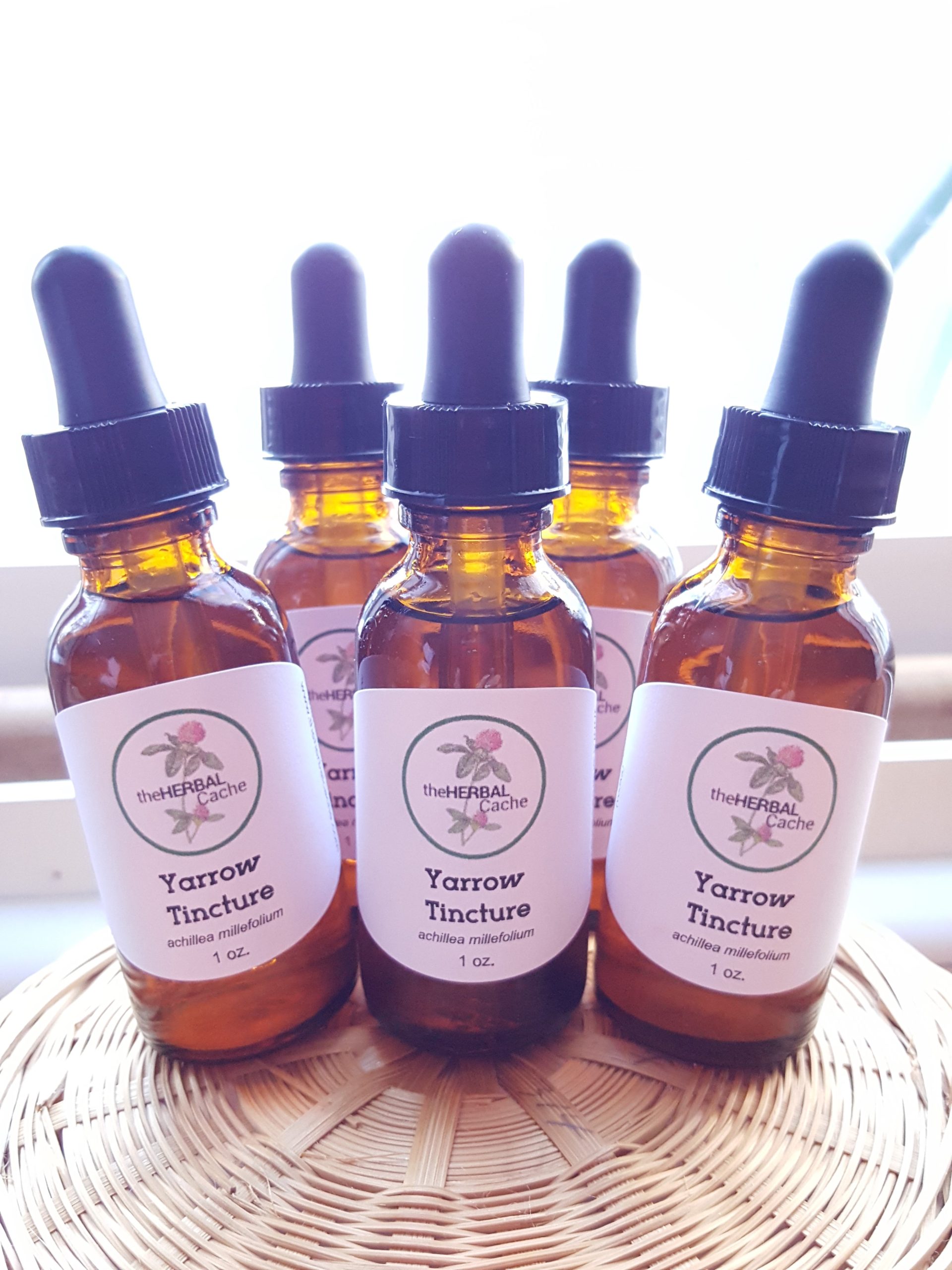

This is part three in my blog post series of “Myths in Herbal Medicine”. You can find the links to the other posts at the end of this post.
I feel that many people think that using herbal medicine can be expensive because it is natural. I guess that would depend on how you approach herbal medicine and what you are buying. But it doesn’t have to be expensive. And by this, I don’t mean that you need to get the cheap stuff either.
For the purpose of this post, by herbal medicine, I mean you can use herbs as food or make them into remedies, such as tinctures or oxymels. Because Hippocrates did say “Let food by thy medicine”.
In this post, I’ll show you a number of ways to get herbs for medicine and food, that won’t empty your wallet. Hopefully, you will find one or more that will suit your needs.
Purchasing herbs in larger quantities at a time can save you money. Some retailers may sell at a wholesale cost if you purchase a minimum amount. You may be able to save 30-70% getting them in bulk.
You will need space to store them. A cool, dark place is best. You can also share with others.
If you tend to store them, there are a number of safe ways to preserve them till use. Airsealing them in bags is how I do it. There are also buckets or pails you can purchase as well, for food grade items.
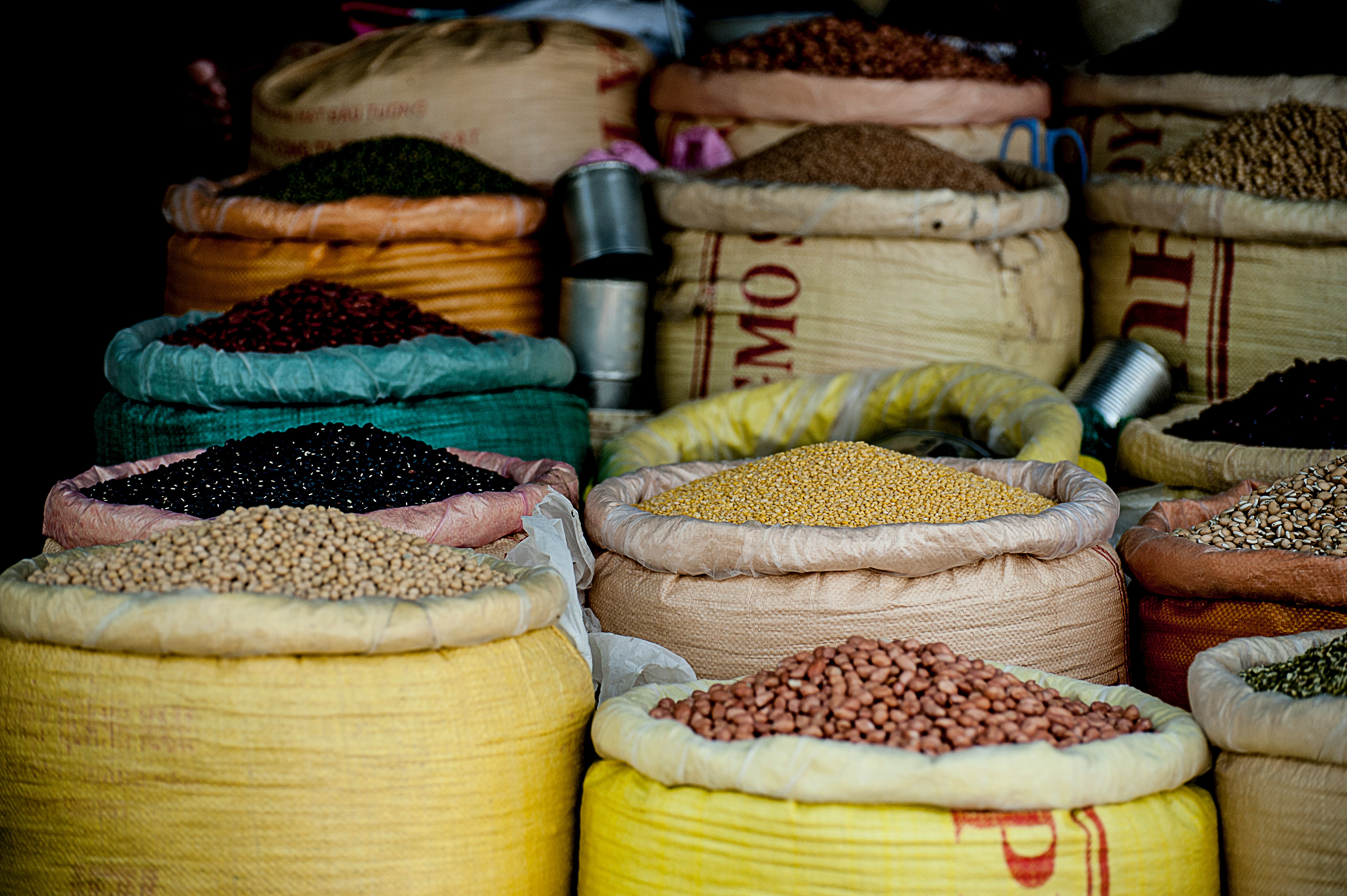
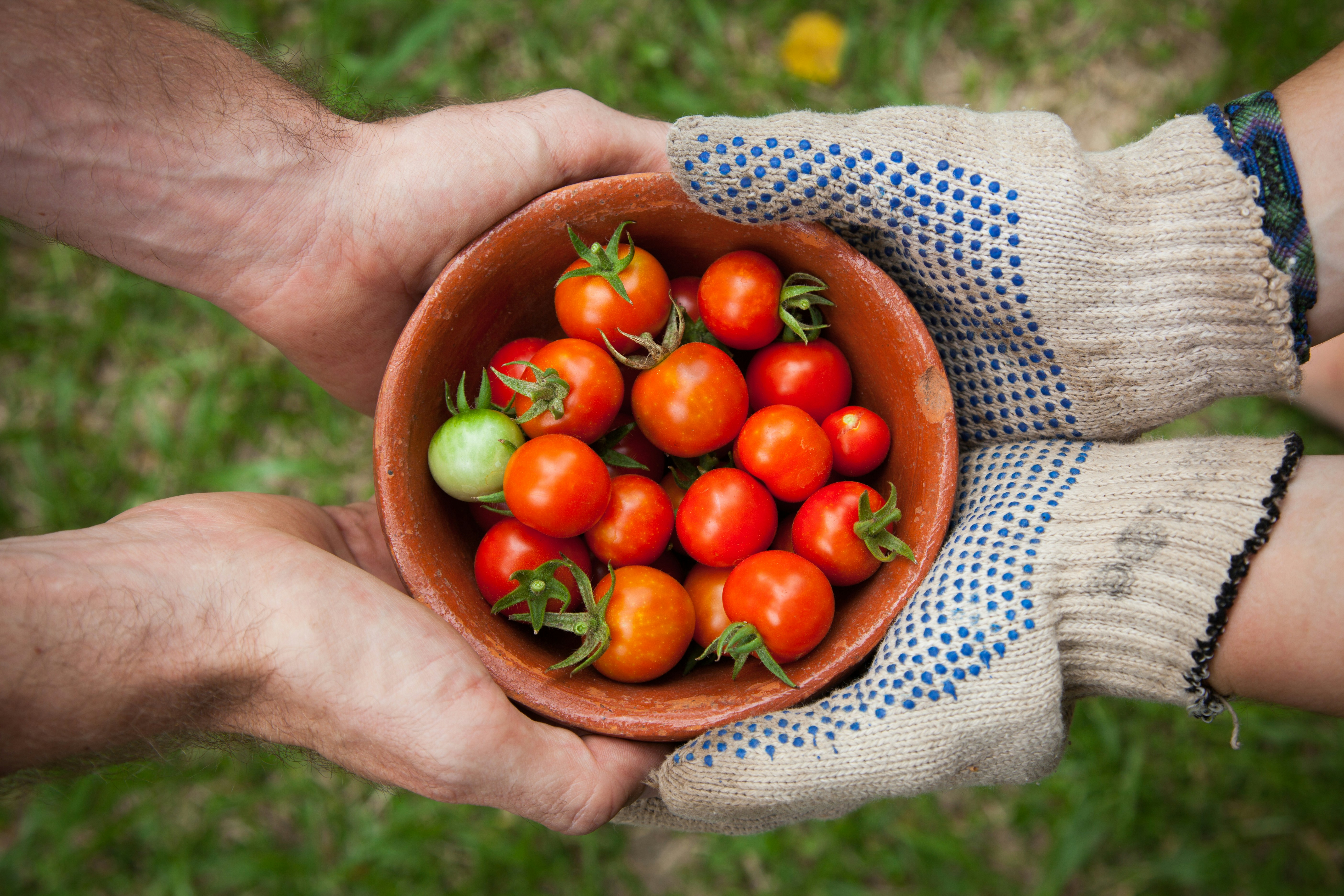
As I mentioned in the previous segment, sharing or partnering with others is another way to save.
Everyone likes saving money. So check with family and friends to see who, if anyone, is already buying the same herbs as you, and see if they want to split a purchase.
By dividing up the cost of herbs, it is not only cheaper, but also lets you use the herbs in a more timely manner. This may mean buying more frequently, but the herbs will be fresher. And who doesn’t like fresh herbs!
I know it is a little more time consuming, but keeping an eye out for sales and coupons can help save you money.
Holidays and company anniversaries are the perfect time to watch for sales.
Signing up for online herbal newsletters will sometimes offer a discount on a one-time purchase. Newsletters also can keep you posted as to when sales are coming up.
I like to utilize sales, even if I don’t need the herb at that time because it saves me money in the long run and I’m not paying full price.

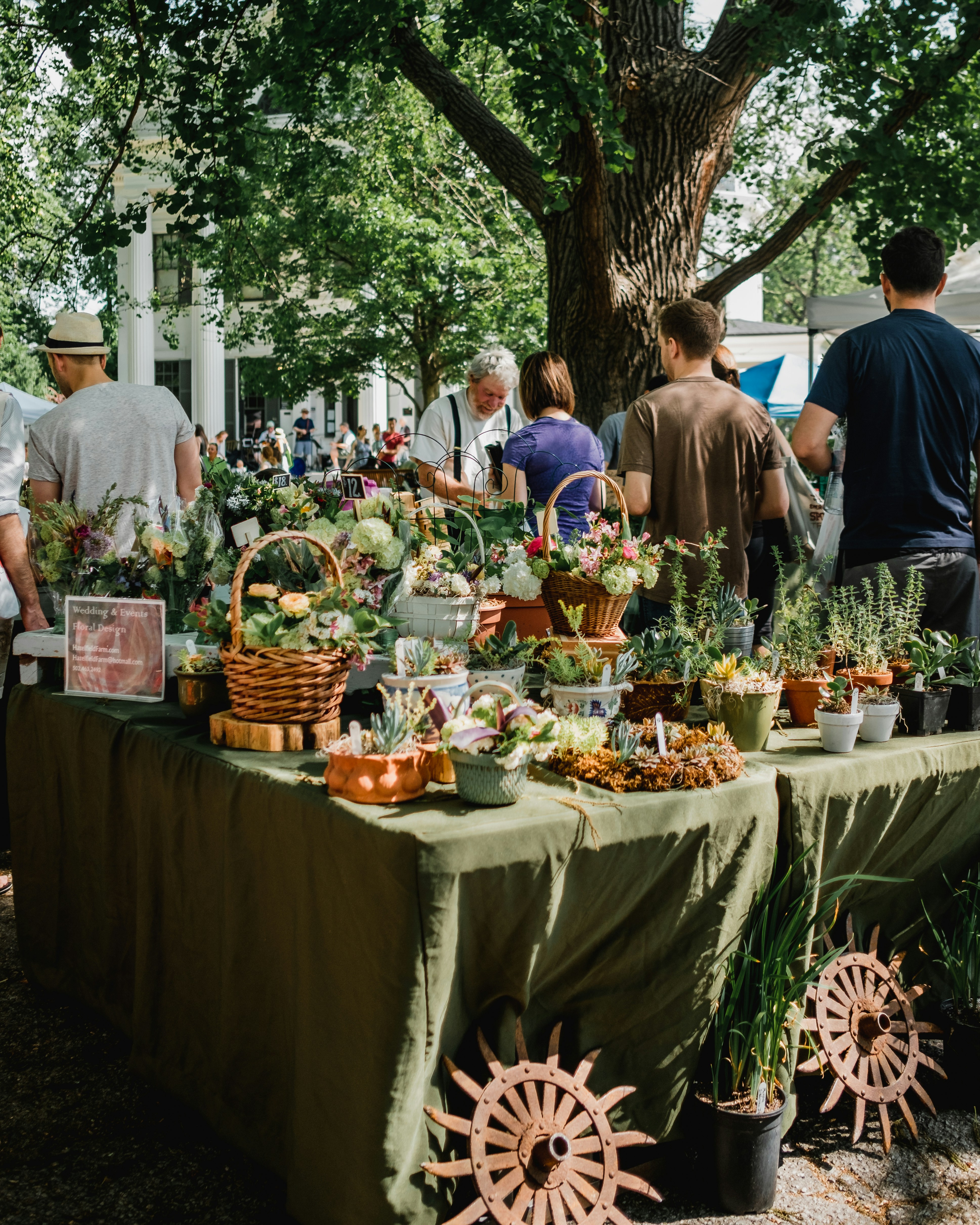
Supporting local is always a good way to find herbs to purchase and farmers markets make that very easy. Most cities and towns host farmers markets during the summer, and some even have them all year long.
I am a little biased here, on recommending farmers markets because I started my herbal business at the local farmers market in town. I sold my herbal products and got to know my weekly customers.
Something to keep in mind, some vendors at farmers markets will barter. So don’t be afraid to “make an offer” for herbs or herbal products you would like to purchase. But make sure to present a reasonable offer. You don’t want to upset a vendor with a ridiculous offer.
By shopping at farmers markets, you also get to know the person selling the herbs, can find out where the herbs are from, how they are harvested, etc. I feel this is one of the best ways to get your herbs because you get to know your herbs, unless you forage or grow your herbs.
I love foraging for a few reasons. First, the herbs, or maybe weeds for some, are free! Of course, this takes time and you need to know where to find the herbs.
Another reason I love foraging is because it gets you outside and into nature. Get your exercise and Vitamin D at the same time!
If you decide to forage, two things to keep in mind. Make sure you know how to identify the plants! There are some that have look-alikes, but can be deadly. Secondly, if its not your land, make sure you get permission to forage.
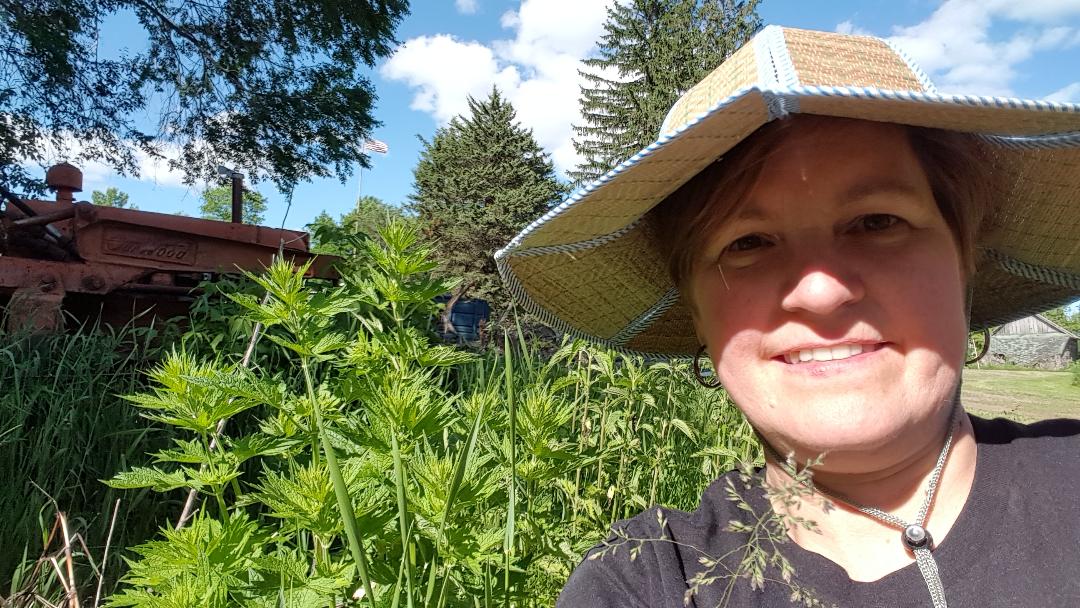
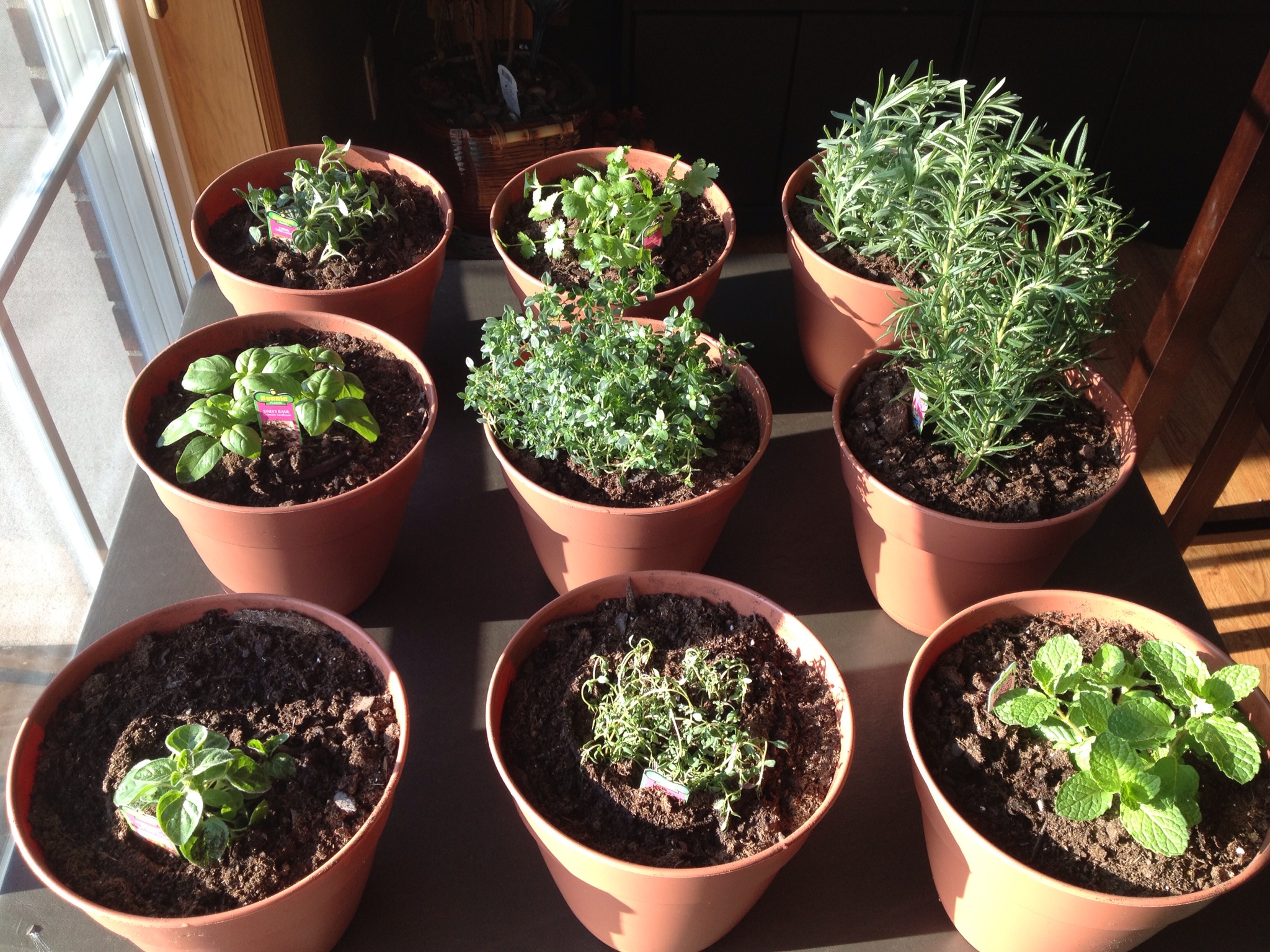
If you enjoy gardening, like me, try growing herbs. I love to watch plants grow and develop, whether in a garden or a patio pot.
Growing your own herbs holds many benefits. First, you can grow the herbs that you want to use. Second, you know exactly how they are grown and where they are coming from. Third, growing your own herbs can be relaxing and fulfilling.
And you don’t need a lot of space. Get a few pots or find a community garden. Don’t let space stop you.
As you can see, there are a number of ways that you can get herbs without breaking the bank. By partnering with others or growing your own, not only will you save money, but it will also give you a sense of accomplishment.
I hope you will find one or more of these ways to get the herbs you want into your herbal pharmacy.
Read my other blog posts in this series of “Myths in Herbal Medicine” and let me know what you think.
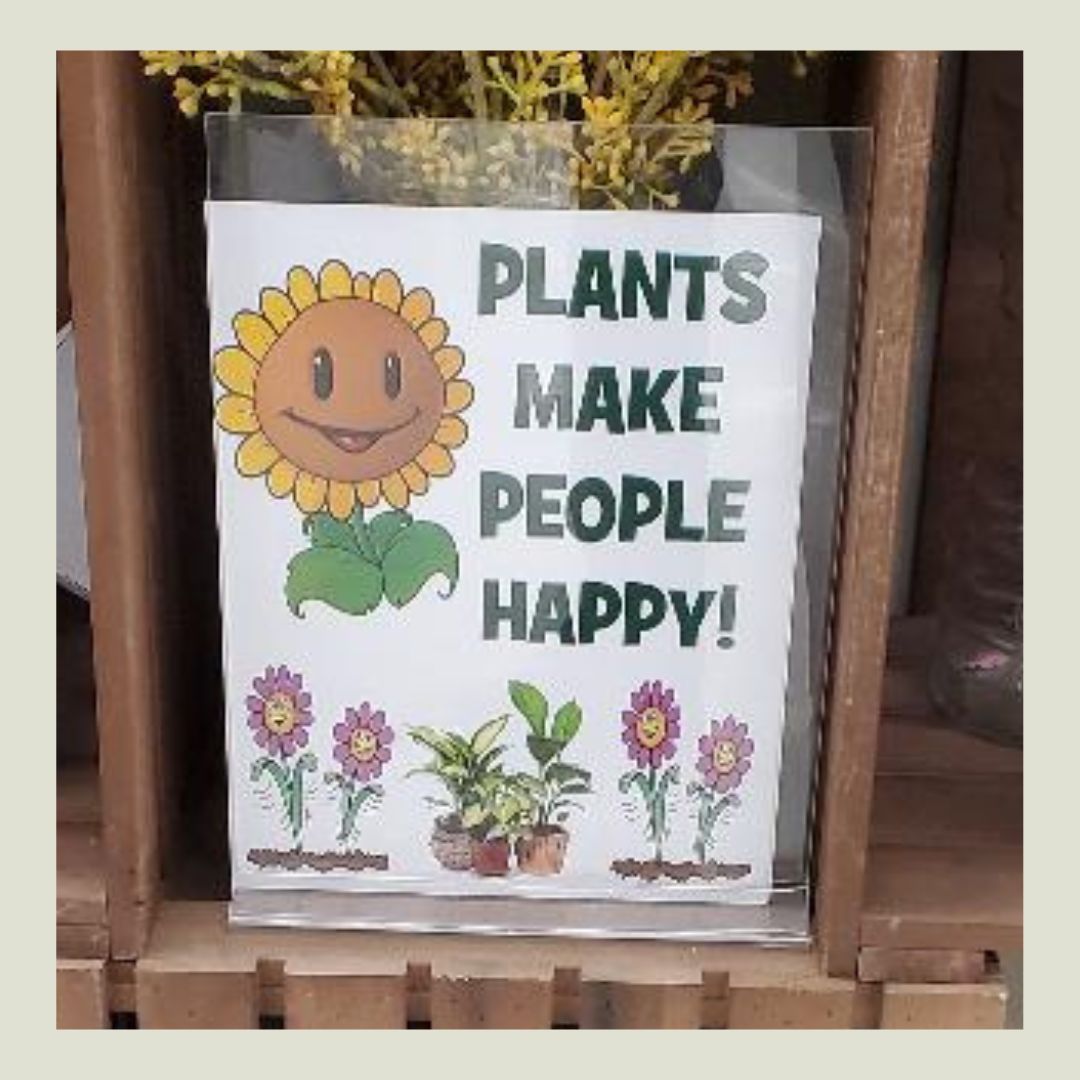
They sure do!
I was out and about one day and I came across this display at a grocery store. I passed it by, but it lingered in my head because plants do make me happy. I turned around, went back to the display and took this picture of it. I love the message “Plants make people happy!”.
We all know that giving and receiving plants, especially flowers, brings a certain joy and peace to our mindset.
That is why flowers are given on so many occassions:
“A beautiful plant is like having a friend around the house”
Why is it that plants bring us happiness?
Well, first off, we are surrounded by plants so we have to be able to live with them, like them and have a connection to them. If you don’t, you are in trouble.
This connection, or innate attraction to nature, is called biophilia. This term was coined by biologist E.O. Wilson. The desire to have house plants, trees along boulevards, a plant on an office desk, etc. stems from this natural desire.
And we can’t forget all the things that plants provide to us: shelter, food, medicine, oxygen and more. So why wouldn’t plants make us happy?
Let’s take a little bit deeper look at the many ways plants make us happy.
Studies have shown that being in and around nature makes us happier. One study has shown that nature walks are great for everyone and help to rejuvenate the brain. Another study by Gregory Bratman from Stanford, showed that those who took a 90 minute walk in nature, had decreased the pattern of thinking that is associated with depression.
To learn more nature walks, check out my blog post, “The Power of a Nature Walk“.
If you can’t get out in it, bring it inside. Natural aesthetic beauty is soothing to people, and keeping ornamental flowers and plants around the home is an excellent way to lower levels of stress and anxiety. People who keep flowers in their home feel happier, less stressed, and more relaxed.
At the end of this post, I share some ideas on what plants to have around your home or office.
About 50% of a group of survey respondents explained that gardening helped them feel calm. I know for me gardening is very calming. Hearing the birds, watching the butterflies and sitting among the plants, yeah I could sit out there all day.
Being surrounded by plants makes people happy. According to a study conducted in hospitals around San Francisco Bay Area, 79% of the patients who took part said they felt calm, 19% claimed to have felt a sense of optimism, and 25% became stronger from spending time around plants.
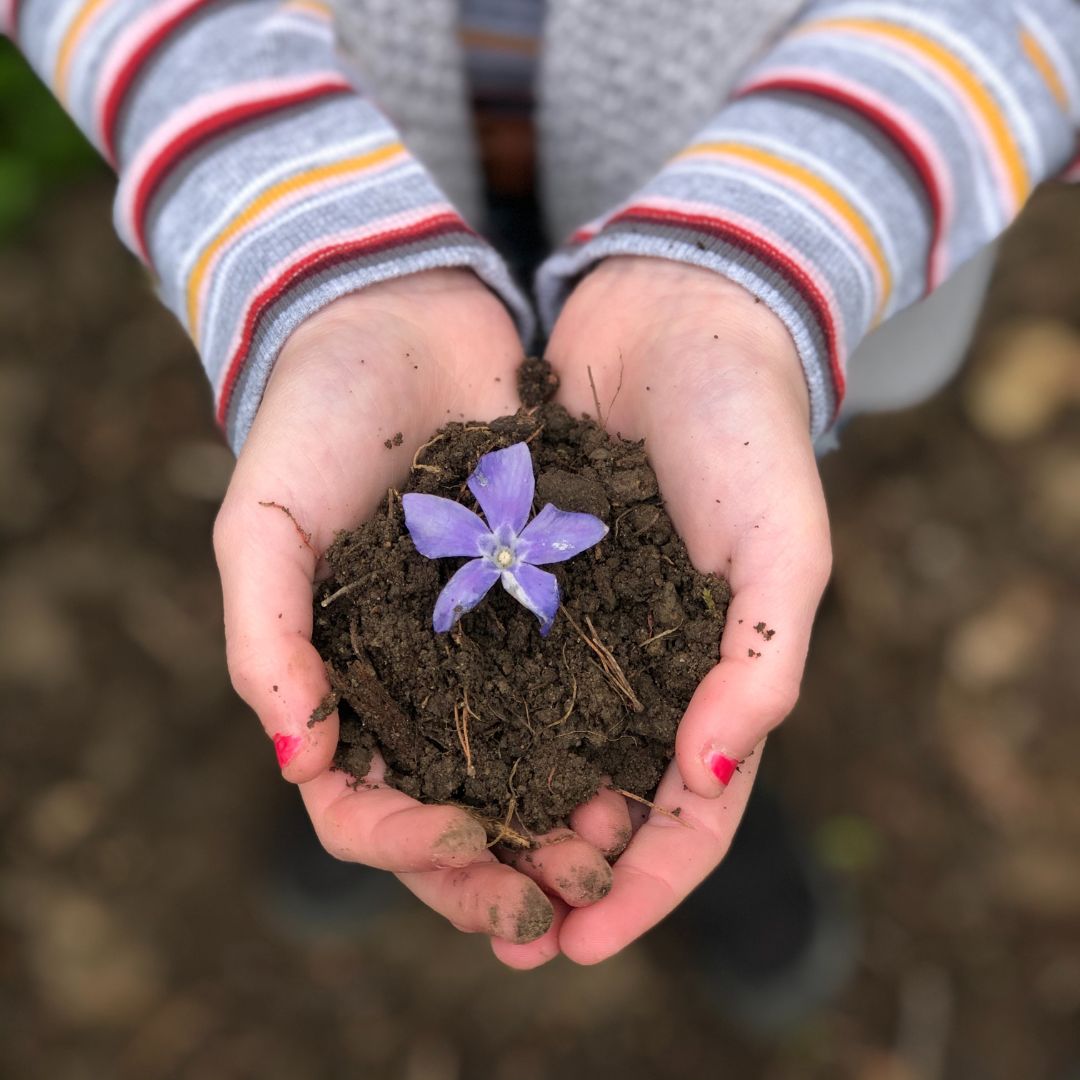
…the bacterium found in soil may help stimulate serotonin production, which makes you relaxed and happier. So getting your hands dirty in the soil when working with plants is beneficial two-fold.
When we are in the hospital or not feeling well, receiving flowers and plants automatically makes us feel better. Whether it is the plant itself or the thoughtfulness from others, receiving brings a sense of peace.
Not only do plants soothe and comfort us, but they have other health benefits as well:
Spending time in nature gives people an increased feeling of vitality, increasing their energy levels and making them feel more animated. Being out in a natural environments helps put a positive outlook on life, making people feel more alive and active.
Our minds need to be stimulated and one of the best ways is to bring the energy of outdoors, indoors with plants.
In a University of Michigan study, memory retention increased 20% while being around plants, positively effecting learning abilities. The effect of nature stimulates the senses and the mind which improves mental cognition and performance. Work performance is better, more accurate and of a higher quality when plants are around.
Studies have shown that surrounding yourself by plants could improve your concentration by up to 20% and increase your ability to recall information by 15-20%. Plants do this by reducing CO₂ concentration and improving air quality.
When I worked in an office setting years ago, I always had a plant on my desk. At the time, I wasn’t aware that it was helping me work better. Now I know.
The house plant pictured below kept me company for over 10 years in my office cubicle and now it hangs out in my stairwell. Still going stronge. Well, except for the war marks from being chewed on by my cat!
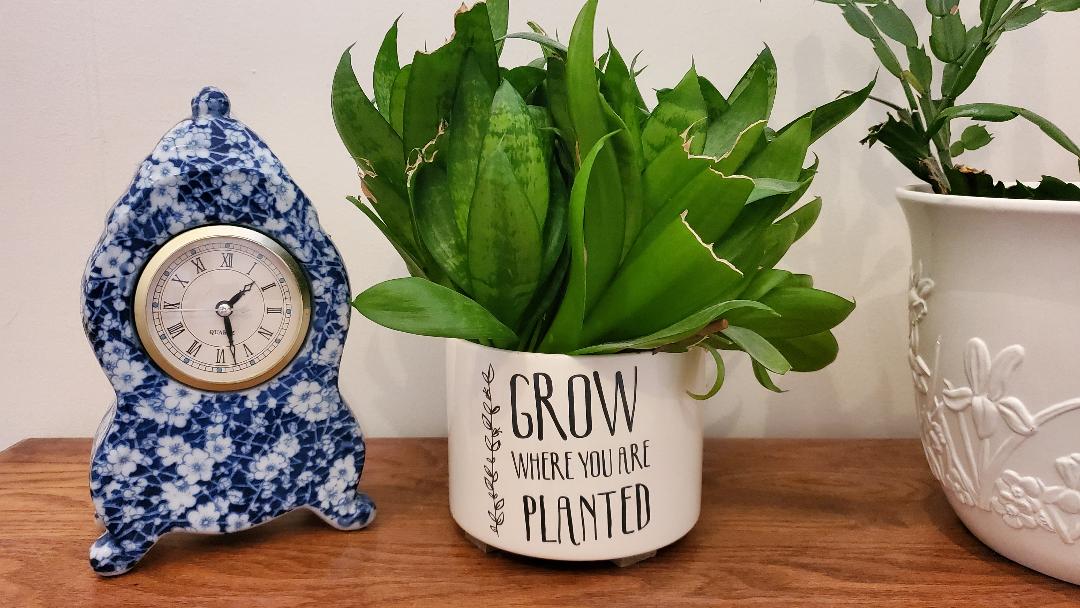
Having plants in your house can be a small but powerful concept that freshens up your space and brings life into your living quarters. Why do people have pets? Because they bring people joy and happiness! The same is true for plants. They provide you with something to care for and offer a change of scenery in your space.
Taking the time to care for a life giving object and putting in the effort to nurture a plant, brings happiness and a sense of calm to people. Not to mention the sense of achievement and the joy that arises when a new leaf pops out or a flower appears!
Studies have shown that people who spend more time around plants are much more likely to try and help others, and often have more advanced social relationships. Spread the love!
Studies have shown that muted green colors have a positive affect in our bodies. It has shorter wavelengths so our eyes don’t need to adjust to it. Also, because green is all over in the natural world, we feel centered and relaxed when surrounded by it. That in turn lowers anxiety. It also makes us feel optimistic and refreshed.
A few years ago I wrote a blog post about the color green, “It’s Not Easy Being Green, or is It?“. Give it a read, it includes a recipe for green bread, which I love!
There are select plants that will bring more happiness to us than others. But that should be taken individually.
For instance, there are thousands of flowers, but none can beat the happiness that a single red rose can offer.
On the other hand, a small child will pick a dandelion and say “Look Mommy! I picked you a flower!” and be so proud of his beautiful find. It’s all perspective.
If you are looking to adopt a plant and wondering where to start or just curious if your current plants are on the list, here are a few to look into.
There is no question about it. Whether its a rose or a dandelion, a flower had a positive effect on us.
I hope this blog post will entice you to get a house plant or two, or plant a flower outside or just take a walk in the woods.

Biophilia – What is it and why is it important?
The history of funeral flowers
5 Reasons Indoor Plants Make You Happier
World Happiness Day: four ways plants help us feel happier
Why Do Plants Make Us Happier? Five Facinating Reasons
Adding a Small Plant to Your Desk Can Improve Your Memory and Make You Happier
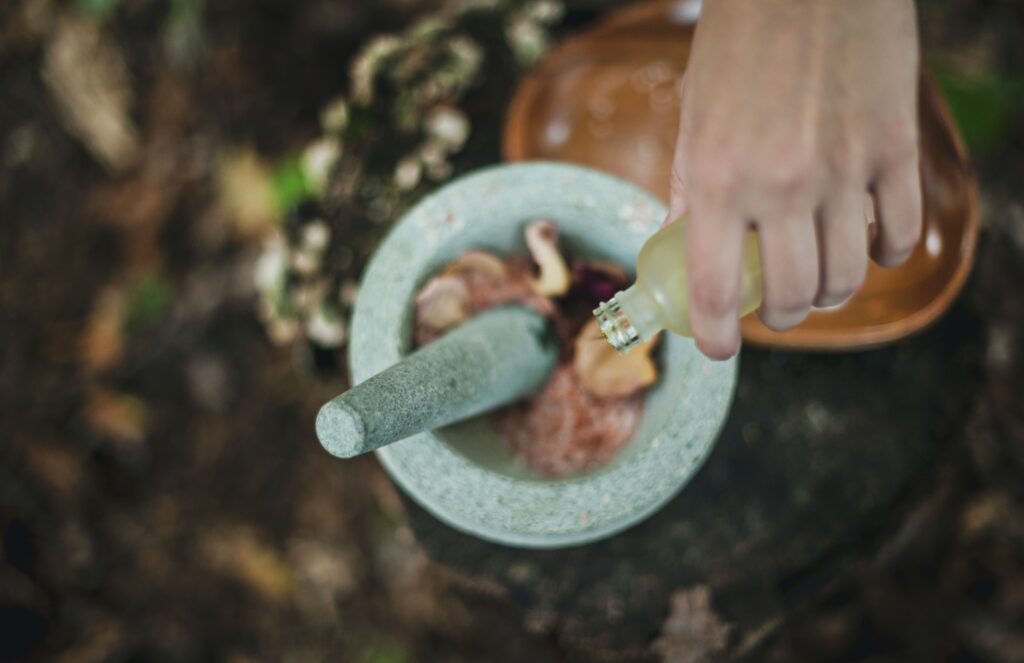
Herbs are natural, they can be found throughout the world and people use them everyday for food or medicinal purposes.
But does that make them safe all the time?
Some people have the misconception that because herbs are natural, they must be safe to use. For the most part, they are, but as with anything, precautions should be taken. In other words, do your research.
Today’s marketing and advertising world have given the word “natural” a meaning that is slightly mis-leading. The word has been used so much, that the definition has become very diluted.
So how do you use herbs safely?

(adj.) existing in or caused by nature; not made or caused by humankind.
Many plants look very similar, but they have different constituents and behaviors. So learning to identify herbs and plants is very important if you plan on using them.
Knowing the botanical names is also key. There are many herbs that have the same common name, but are totally different plants.
The common name of a plant is one that has caught on in a specific region over time. When people migrate to another region, they may associate a new plant with one they are familiar with from another region, even though the plant may be unrelated. This can cause a lot of confusion when talking about herbs.
Lets look at sage for example. There is culinary sage and there is sagebrush. Both are called sage, depending on the location. But they are totally different plants. The botanical name for culinary sage is Salvia officinalis, and sagebrush’s botanical name is Artemisia tridentata.

In looking at how herbs work, there are many variables. The preparation, the part of the herb used, the age of the herb, taken singly or with other herbs and is it being used topically or internally all help determine the safeness of the herb.
Herbs can be prepared safely in many ways. Some can be used in their raw form, like our culinary herbs, basil and parsley. They can be made into tinctures using either an alcohol or glycerin solvent. Herbs can also be dried and used in powder form. They can also be made into herbal oils and vinegars.
An herb used on its own can be safe, but when used with another herb at the same time, the results could be slightly different. This is because of the chemisty and synergy that happens with combining herbs. That doesn’t make it unsafe, but just know that it can behave differently.
Some herbs work better, or may be more potent, when paired with others. Other herbs are like helpers. They help other herbs do their job better or more effeciently. Pepper is a good example of this. Pepper helps many herbs become more absorbable into the bloodstream and cells. It is like the “transport” herb. You will see it partnered up with turmeric a lot.
Try to use just one herb at a time if possible when starting out.
When more than one herb is used and there are side-effects, how can you tell which herb is creating that side-effect? By using one herb, it is a lot easier to determine which herb is causing adverse effects, if there are any, or if you may be allergic to one.
By taking one at a time is an easy way to see which herbs are safe when being used for you.
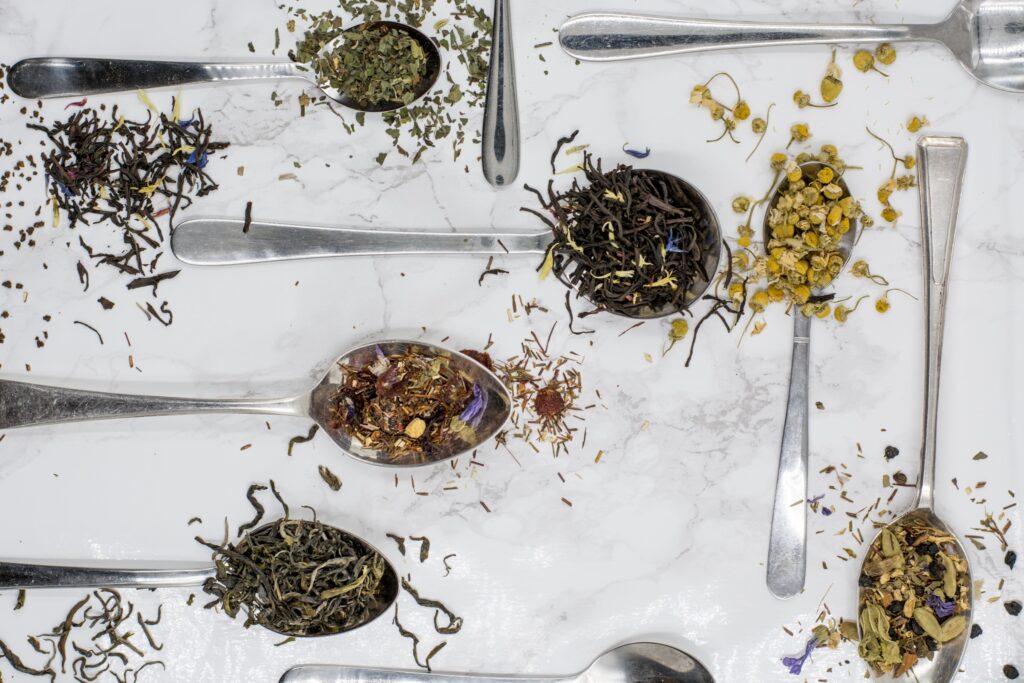
If you are unsure, seek out a professional to help navigate the safety of herbs. This is especially key if you are taking pharmaceuticals.
Most herbs can be used safely with allopathic medicine, but since not all combinations have been studied or tried, it is best to be cautious.
St. John’s Wort is probably the most well known for its interactions with pharmaceuticals. St. John’s Wort is very good at flushing out what should not be there. In other words, having pharmaceuticals in your body is not normal, so St. John’s Wort sees that and removes it.
So in recapping, make sure to:
By doing your own research, learning about herbs, listening to your body and taking precautions, you can know that you are using herbs safely.
To learn more about common myths in herbal medicine, check out my other blog posts:

I have been asked so many times “Has it been studied?”, referring to the herb or herbs I was recommending.
Herbs have been known for thousands of years for their healing properties. If they hadn’t worked, the knowledge would not have been passed down through the generations.
So it is a myth to say that plants have not been studied. They have been for thousands of years. Just not in the form of today’s “science”.
As the years go by, science is slowly picking up on the medicinal benefits of plants. Detailed studies are slowly being done with results verifying the knowledge from yesterday.
One reason we don’t see a lot of modern scientific studies on medicinal plants, is money. And this can be viewed from a few different angles. The first angle is fairly obvious, studies cost money and take time. Is the outcome worth the money that would be needed? That may depend on who you ask. Another angle is whether or not the study will produce results that lead to financial gain. That would be a reason for someone to hold a study, what can I get out of it.
But I feel that simple science is a start that will hopefully one day lead to more scientific studies.
I like to say it was “simple science” that has been used throughout the years to study and learn about plants and their medicinal qualities.
By simple science, I mean using your senses of taste, sight, touch and smell.
Most people can relate to smell and the outcomes of the aromas. For example, when you inhale a scent of lavender, most people will immediately feel a sense of calm come over them. Because of the popularity of lavender, more and more studies are being done as to how it affects us.
Taste is another sense that we use to determine what affect a plant may have on us. Take a bite of a dandelion leaf. What happens? Your mouth puckers up from the bitterness. Your taste buds then send a signal to your brain that triggers an increased production of digestive enzymes and stomach acid.
This is why salads are frequently served before a main meal, because the leafy greens, the bitters, get your digestive system going.
By seeing, touching, smelling and tasting, (my simple science), I can predict what will happen the next time I use a particular herb. I don’t necessarily need a scientific study to tell me that.
Though I do suppose you could include the sense of hearing too. For example, after your friend runs through a nettle patch and you now can hear him crying out in pain…
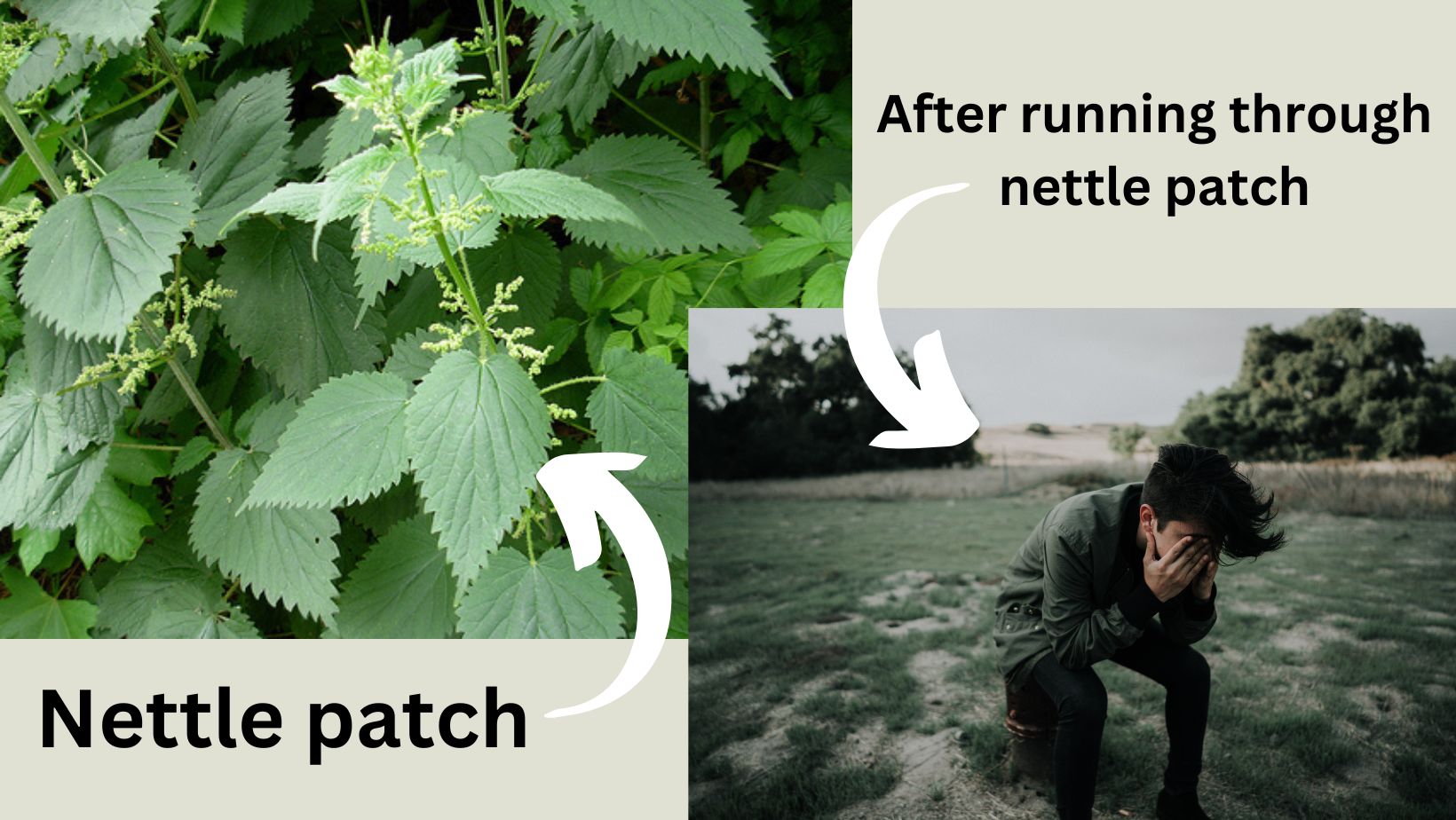
Knowing what to look for in studies can help you better understand if the study is actually answering the question or condition you have.
A few key things to look at are who funded the study, how was the study done and what were the variables. It is sad to say, but those funding a study sometimes are looking for an outcome to satisify them. From here, you want to look at how the study is done and the variables.
According to Dr. Patrick Jones, from the Homegrown Herbalist School of Botanical Medicine, you want to “recognize the hallmarks of good research: precision, repeatability, and the elimination of variables.”
Being able to repeat a study over and over with the same precision and variables to arrive at the same conclusion every time makes for a good study.
Here is a short video from Dr. Patrick Jones with more on how to differentiate good studies from bad studies.
So the myth that herbs haven’t been studied, is exactly that, a myth. Everyday we are in our own little world of study. By using our senses, we are learning what plants look like, smell like, feel like and taste like. As individuals, we may all notice something differently. For example, many people love cilantro, but others hate it because it tastes like soap to them.
So my point is, learn from what your senses tell you. That is your findings in herbal study.
To learn more about common myths in herbal medicine, check out my other blog posts: